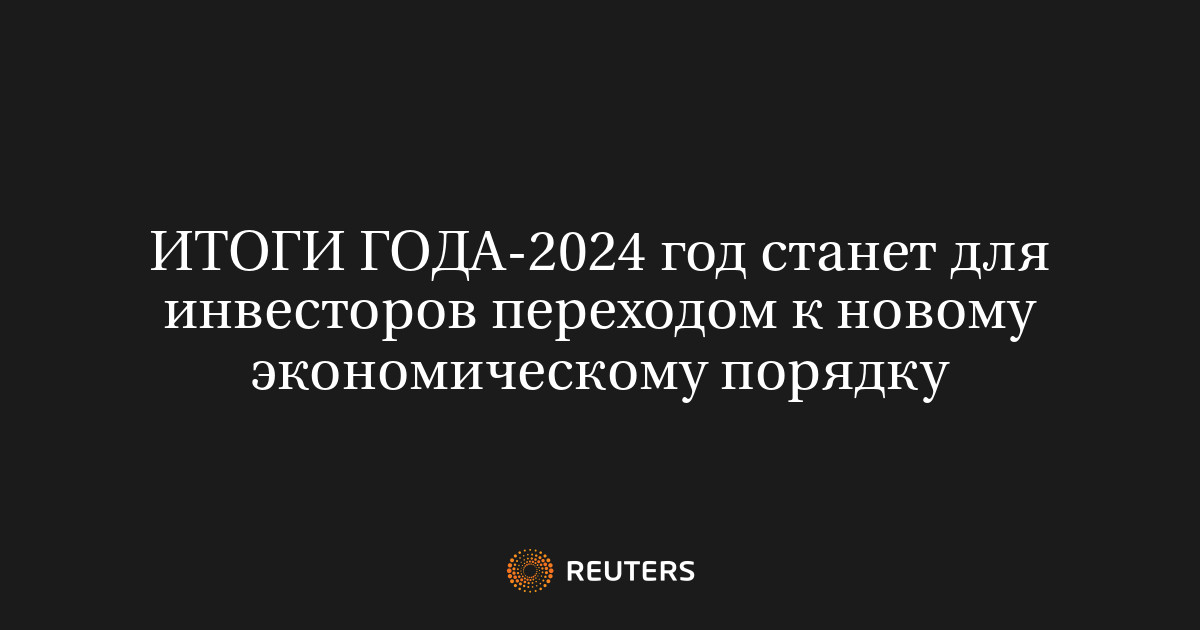(Repeat message from Jan 2)
Jan 2 (Reuters) – Investors appear convinced that major Western central banks are close to a widely expected reversal from raising interest rates to lowering them. That belief has already lifted markets, but 2024 could hold surprises as the world adjusts to a new economic era in which money is not cheap.
Global stocks rose and yields on key government bonds fell in the final weeks of the year, despite regulators’ warnings against hasty bets on a monetary policy turnaround. In the United States, for example, investors have now effectively built in a position that the Federal Reserve will lead the economy to a perfect landing: reducing inflation while managing to avoid pushing the economy into recession.
The market’s confidence in a happy ending is explained by the fact that the US economy surprised everyone last year. Part of its resilience comes from the savings consumers put aside during the pandemic and America’s appeal as a safe port for investment in an increasingly chaotic world.
Investors may be right: a prominent economist and former Fed official also recently recalled that the US Central Bank has been able to achieve a soft landing more often in the past than is commonly believed.
But many investors and executives see the likelihood of a good outcome as slim as pandemic-era savings dwindle and storm clouds gather on the horizon, especially with the upcoming U.S. presidential election likely to bring further turmoil.
Investors expect the Fed could cut borrowing costs by as much as 1.5% by the end of 2024, but that would still leave interest rates around 4%, higher than they have been for most of the last 20 years. At this level, monetary policy will continue to act as a drag on growth because borrowing costs will be higher than the so-called neutral rate, where the economy neither expands nor contracts.
Add to this the many other risks to the outlook for 2024 – two major wars, rising geopolitical tensions that have decisively reversed globalization, and elections in several countries that could radically change the world order in unexpected ways.
WHY IT’S IMPORTANT Interest rates underlie everything from economic growth to financial asset prices to the cost of borrowing to buy a car or home.
Higher interest rates make risky assets like tech stocks and cryptocurrencies less attractive, as investors can make decent returns without much risk.
As money becomes harder to come by, riskier positions may fail and bubbles may burst, leading to events such as the regional bank crisis in the US in March 2023. As companies struggle, they cut costs. People are losing their jobs and new jobs are becoming scarce.
WHAT DOES THIS MEAN FOR 2O24
Although the Fed and other central banks have been raising rates for more than a year, the world has not yet completed the transition from an era of easy money to a more difficult environment. 2024 will likely be the year when the consequences of this transition become more apparent.
This means that companies – and in some cases entire countries – will have to restructure debt obligations because they will no longer be able to pay the interest on them. This is already partly noticeable in the negotiations on the debts of developing countries and the increase in company bankruptcies. The number of corporate bankruptcy filings in the United States has reached its highest level since 2020. There are likely to be more on the horizon.
Sectors of the economy such as commercial real estate, where some office markets have been hit hard by new ways of working in the wake of the pandemic, will face even greater challenges. More landlords may have to reassess their portfolios and hand over the keys to their buildings, with banks and investors facing losses, as is now happening to insolvent European property company Signa.
For consumers, their savings will bring more profit, but the higher cost of borrowing will require them to adapt to new conditions. For example, many American adults are only familiar with the low interest rates on 30-year mortgages. They will have to come to terms with rates that are more than twice as high and reconsider their family budget.
Bottom line: Investors’ hopes will likely be tested in the new year, and everyone will have to learn to live with higher interest rates.
The original message in English is available using the code
(Paritosh Bansal)
2024-01-07 09:00:00
#RESULTS #YEAR #transition #investors #economic #order


